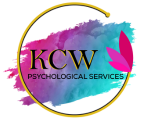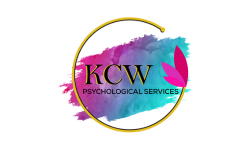
Journaling is more than just putting pen to paper. It’s a powerful tool for mental health that allows you to process thoughts, explore emotions, and gain mental clarity. At KCW Psychological Services, we recognize the benefits of journaling as a therapeutic practice. Whether you’re dealing with anxiety, stress, or simply need a way to organize your feelings, journaling can offer insight and relief.
How Journaling Supports Mental Health
Journaling creates a safe, private space for reflection, which is key to emotional well-being. By writing down your thoughts, you give them structure and meaning. It can help release overwhelming emotions and reduce mental clutter, promoting a clearer, calmer mind.
Research shows that expressive writing can lead to improved mental health. A study from Psychological Science revealed that journaling for just 15-20 minutes a day helps lower stress, reduce anxiety, and even improve physical health over time . This simple practice can offer profound benefits to anyone looking to manage their emotional landscape.

Techniques to Get Started with Journaling
If you’re new to journaling or unsure where to start, don’t worry. There are several effective techniques to help guide your process. Here are a few simple approaches that can offer clarity and emotional insight:
Stream of Consciousness Writing
This technique involves writing whatever comes to mind without filtering your thoughts. The goal is to let your thoughts flow freely, releasing the mental clutter that might otherwise stay bottled up. Set a timer for 10-15 minutes and write continuously. Don’t worry about grammar, punctuation, or even making sense—just let your thoughts spill onto the page.
Gratitude Journaling
Gratitude journaling involves writing down things you are thankful for each day. Focusing on positive aspects of your life can shift your mindset from stress or negativity to a sense of appreciation and abundance. Try listing three things you’re grateful for each morning or before bed to foster a sense of emotional well-being.
Prompt-Based Journaling
If you prefer more structure, using prompts can help direct your thoughts and explore specific areas of your emotional life. Prompts can vary from exploring personal challenges to setting goals or reflecting on a recent experience. For example, “What is a current challenge you’re facing, and how can you approach it differently?” or “How have you grown emotionally over the past year?”
The Emotional Benefits of Journaling
Journaling allows you to process emotions that might otherwise remain unaddressed. Whether it’s anger, sadness, frustration, or joy, writing helps you identify and clarify how you’re feeling. This clarity leads to a better understanding of your emotions and patterns.
Reducing Anxiety and Stress
Writing about stressful experiences can lessen their emotional impact. Journaling provides an outlet to vent frustrations or worries, releasing them from your mind and onto the page. This act alone can help you feel lighter and less overwhelmed.
Gaining Mental Clarity
When emotions or thoughts feel tangled, journaling can untangle them. Writing forces you to organize your thoughts, which provides clarity on how to manage them. It can help you solve problems, set goals, or understand your emotional triggers better.
Tracking Emotional Patterns
One of the most valuable aspects of journaling is that it offers insight into long-term emotional patterns. By reviewing past entries, you can identify what triggers certain emotions and how you’ve handled them. This self-awareness promotes growth and helps you manage recurring mental health challenges.
Practical Journaling Prompts for Mental Clarity
If you’re unsure how to start or what to write about, try using these prompts designed to foster mental clarity and emotional processing:
Explore Your Current Emotions
- What am I feeling right now, and why?
- Are these feelings connected to something specific that happened today or in the past?
Reflect on Personal Growth
- How have I grown emotionally over the last six months?
- What life lesson has been the most impactful for me recently?
Process a Challenge
- What is one challenge I’m currently facing?
- How can I reframe this challenge as an opportunity for growth?
Set Intentions for the Future
- What are my goals for the next month, and how can I achieve them?
- What values do I want to prioritize moving forward?

How to Build a Sustainable Journaling Practice
Journaling, like any habit, takes time to develop. Here are a few tips to help you build a consistent practice that benefits your mental health:
Start Small and Stay Consistent
You don’t need to write for hours each day. Start with 5-10 minutes of journaling, either in the morning or before bed. Consistency is more important than the amount of time spent. The more you journal, the more natural it will feel.
Create a Comfortable Space
Find a quiet, comfortable place where you can focus without distractions. Some people find that journaling at a specific time of day (like first thing in the morning or after work) helps establish a routine. Light a candle or play calming music to set the mood.
Be Kind to Yourself
There’s no “right” way to journal. Avoid judging your writing or worrying about how it sounds. The goal is to express yourself freely and explore your inner world. Give yourself permission to write imperfectly and embrace the process.
Why KCW Psychological Services Recommends Journaling
At KCW Psychological Services, we encourage our clients to use journaling as part of their mental health toolkit. It’s a versatile, accessible practice that complements therapy by offering ongoing emotional release and self-reflection. For many of our clients, journaling has provided new insights into their mental health journey, helping them work through emotions between sessions.
Complementary to Therapy
Journaling isn’t a replacement for therapy, but it’s a powerful tool to use alongside it. During therapy, your journal can serve as a record of your thoughts, struggles, and progress, helping you discuss specific areas with your therapist more effectively. It offers continuity and allows you to reflect on therapy topics in your own time.
Encouraging Emotional Exploration
We believe that journaling helps you connect with your emotions on a deeper level. By giving yourself permission to explore feelings through writing, you create a space for healing and growth. Our therapists often recommend journaling as a way to process emotions between therapy sessions, giving you an ongoing outlet for reflection.
Ready to Experience the Healing Power of Journaling?
Journaling offers a path to mental clarity, emotional growth, and greater self-awareness. Whether you’re looking for a way to manage anxiety, process stress, or gain insight into your emotional patterns, journaling is a tool that can support your mental health journey.
Begin Your Healing Journey with KCW Psychological Services
At KCW Psychological Services, we’re here to support you every step of the way. Whether you’re seeking therapy, journaling guidance, or looking for holistic approaches to mental health, our identity-affirming, empathetic care is designed to meet your needs.
If you’re ready to explore the benefits of journaling or therapy, contact us today. Together, we can work toward mental clarity and emotional resilience.

Ready to unlock mental clarity through journaling? Contact KCW Psychological Services today to schedule a session and learn more about integrating journaling into your mental health routine
Related Articles
Related
The February Audit: The Best Time to Re-Evaluate Your Goals
We are officially in month two of the new year. Do you remember what your goals were? Setting goals for the new year does not have to be draining. At times, we tend to focus on the big picture, aka the big goal, but forget that it takes time, patience, and much...
Unwrapping Wellness: Managing Holidays and Mental Health
The holidays are here, and so are a variety of emotions that we may experience as we navigate the holiday season. Some people are ready to jump into the holiday spirit, while others are not and only want the year to end as soon as possible. Holidays can cause feelings...
Dia de los Muertos (Day of the Dead) & Grief
Dia de los Muertos (Day of the Dead) and grief are deeply connected to one another. Dia de los Muertos is a cultural celebration of life and memory for deceased loved ones. Originated in Mexico and now being celebrated in other parts of Latin America and the United...





